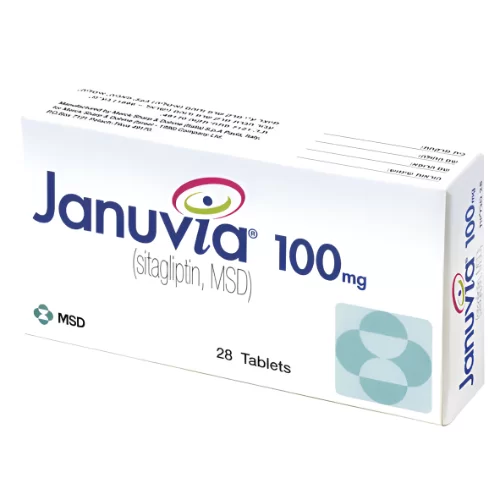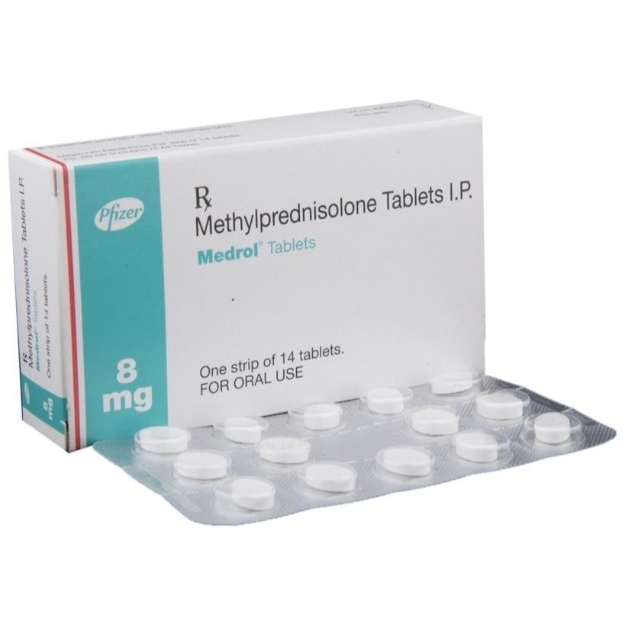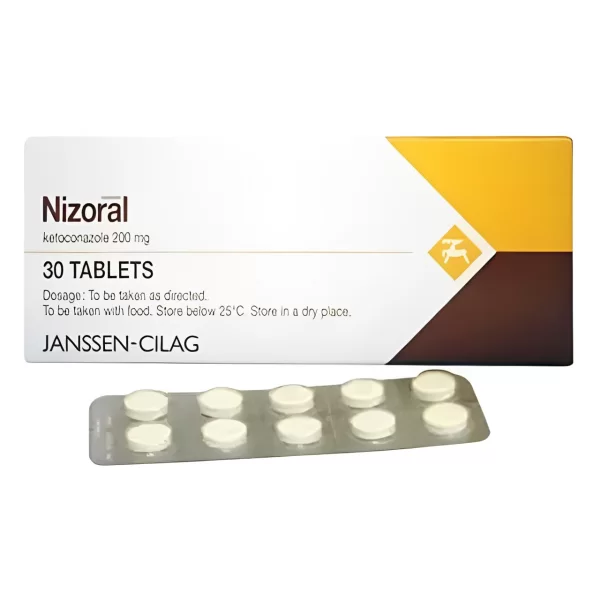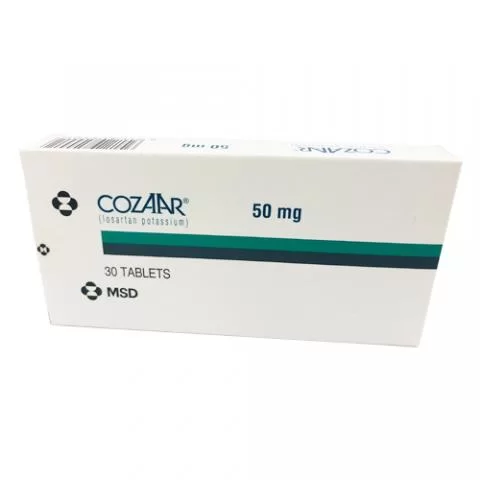
Zyprexa
Zyprexa - 20mg
| Product | Per Pill | Savings | Per Pack | Order |
|---|---|---|---|---|
| 30 pills | $3.59 | $107.84 | Buy Now | |
| 60 pills | $2.65 | $56.94 | $215.69 $158.75 | Buy Now |
| 90 pills | $2.33 | $113.88 | $323.53 $209.65 | Buy Now |
| 120 pills | $2.17 | $170.82 | $431.37 $260.55 | Buy Now |
| 180 pills | $2.01 | $284.71 | $647.07 $362.36 | Buy Now |
Zyprexa - 10mg
| Product | Per Pill | Savings | Per Pack | Order |
|---|---|---|---|---|
| 30 pills | $3.04 | $91.27 | Buy Now | |
| 60 pills | $2.24 | $48.19 | $182.54 $134.35 | Buy Now |
| 90 pills | $1.97 | $96.38 | $273.81 $177.43 | Buy Now |
| 120 pills | $1.84 | $144.57 | $365.08 $220.51 | Buy Now |
| 180 pills | $1.70 | $240.96 | $547.63 $306.67 | Buy Now |
Zyprexa - 5mg
| Product | Per Pill | Savings | Per Pack | Order |
|---|---|---|---|---|
| 30 pills | $2.07 | $62.10 | Buy Now | |
| 60 pills | $1.64 | $25.74 | $124.20 $98.46 | Buy Now |
| 90 pills | $1.50 | $51.49 | $186.31 $134.82 | Buy Now |
| 120 pills | $1.43 | $77.24 | $248.42 $171.18 | Buy Now |
| 180 pills | $1.36 | $128.73 | $372.63 $243.90 | Buy Now |
| 270 pills | $1.31 | $205.96 | $558.94 $352.98 | Buy Now |
| 360 pills | $1.28 | $283.19 | $745.25 $462.06 | Buy Now |
| 30 pills | $1.11 | $33.36 | Buy Now | |
| 60 pills | $0.88 | $13.83 | $66.72 $52.89 | Buy Now |
| 90 pills | $0.80 | $27.66 | $100.07 $72.41 | Buy Now |
| 120 pills | $0.77 | $41.48 | $133.42 $91.94 | Buy Now |
| 180 pills | $0.73 | $69.14 | $200.14 $131.00 | Buy Now |
| 270 pills | $0.70 | $110.62 | $300.21 $189.59 | Buy Now |
| 360 pills | $0.69 | $152.10 | $400.27 $248.17 | Buy Now |
| 60 pills | $0.55 | $32.92 | Buy Now | |
| 90 pills | $0.45 | $8.89 | $49.39 $40.50 | Buy Now |
| 120 pills | $0.40 | $17.78 | $65.85 $48.07 | Buy Now |
| 180 pills | $0.35 | $35.56 | $98.77 $63.21 | Buy Now |
| 270 pills | $0.32 | $62.22 | $148.15 $85.93 | Buy Now |
| 360 pills | $0.30 | $88.89 | $197.54 $108.65 | Buy Now |
Overview
General Introduction Zyprexa (olanzapine) is an atypical antipsychotic medication primarily used to treat schizophrenia and bipolar disorder. Developed by Eli Lilly and Company, it was first approved by the FDA in 1996. Zyprexa works by modulating the activity of various neurotransmitters in the brain, including dopamine and serotonin. By balancing these neurotransmitters, Zyprexa helps alleviate symptoms of psychosis, such as hallucinations and delusions, and stabilizes mood swings in bipolar disorder.
Key Benefits and Unique Properties
- Efficacy: Zyprexa effectively reduces symptoms of schizophrenia, including hallucinations, delusions, and thought disorders.
- Mood Stabilization: It is effective in treating manic and mixed episodes in bipolar disorder, helping to stabilize mood swings.
- Rapid Onset: Zyprexa has a relatively fast onset of action, with some patients experiencing symptom relief within a few days.
- Versatile Formulations: Available in various forms, including tablets, orally disintegrating tablets, and intramuscular injections, offering flexibility in administration.
- Long-Term Management: Suitable for both acute and long-term management of schizophrenia and bipolar disorder, supporting sustained symptom control.
Effectiveness Zyprexa is considered one of the most effective antipsychotic medications for managing schizophrenia and bipolar disorder. Clinical studies have shown significant improvements in positive symptoms (hallucinations, delusions) and negative symptoms (social withdrawal, lack of motivation) of schizophrenia. It is also effective in reducing the frequency and severity of manic episodes in bipolar disorder. Zyprexa's effectiveness in both acute and maintenance therapy makes it a valuable option for long-term treatment.
Safety and Tolerability Zyprexa is generally well-tolerated, but like all antipsychotic medications, it can have side effects. Common side effects include weight gain, drowsiness, and increased appetite. Long-term use may be associated with metabolic changes, such as increased blood sugar and cholesterol levels. Regular monitoring of weight, blood glucose, and lipid levels is recommended for patients on long-term Zyprexa therapy. Despite these potential side effects, many patients benefit from Zyprexa's efficacy in controlling their psychiatric symptoms.
Indications for Use
Diseases and Conditions Treated
- Schizophrenia: Zyprexa is indicated for the treatment of schizophrenia in adults and adolescents. It helps manage symptoms such as hallucinations, delusions, disorganized thinking, and social withdrawal.
- Bipolar Disorder: Zyprexa is effective in treating manic or mixed episodes associated with bipolar I disorder in adults and adolescents. It is also used as a maintenance treatment to prevent recurrence of mood episodes in bipolar disorder.
Primary Symptoms and Indications
- Psychotic Symptoms: Zyprexa helps alleviate positive symptoms (hallucinations, delusions) and negative symptoms (social withdrawal, lack of motivation) of schizophrenia.
- Mood Stabilization: It is used to stabilize mood in patients with bipolar disorder, reducing the frequency and severity of manic and mixed episodes.
- Preventive Use: Zyprexa is used in maintenance therapy to prevent the recurrence of mood episodes in bipolar disorder, supporting long-term stability.
Dosage and Administration
Dosage and Intake
- Adults: The recommended starting dose for schizophrenia is 5-10 mg once daily, with a target dose of 10 mg/day. For bipolar disorder, the starting dose is typically 10-15 mg once daily. Dose adjustments should be made based on the patient's response and tolerance.
- Adolescents: The starting dose for adolescents with schizophrenia or bipolar disorder is 2.5-5 mg once daily, with gradual increases based on clinical response and tolerability.
- Elderly Patients: Lower initial doses may be required for elderly patients, starting at 2.5-5 mg once daily, with careful monitoring for side effects.
Timing and Frequency
- Optimal Timing: Zyprexa is usually taken once daily, with or without food. Evening dosing is often preferred due to its sedative effects.
- Frequency: Once daily administration helps maintain stable drug levels in the body, ensuring consistent therapeutic effects.
Additional Recommendations
- Hydration: Maintain adequate hydration, especially in hot weather, to avoid dehydration and heatstroke.
- Missed Dose: If a dose is missed, take it as soon as remembered unless it is close to the time of the next dose. Do not double the dose to make up for the missed one.
Mechanism of Action
Description of Mechanism
- Primary Mechanism: Zyprexa works by modulating the activity of neurotransmitters in the brain, primarily dopamine and serotonin. It acts as an antagonist at dopamine D2 and serotonin 5-HT2A receptors, helping to balance these neurotransmitters and reduce symptoms of psychosis and mood disorders.
- Molecular Targets: Zyprexa blocks dopamine D2 and serotonin 5-HT2A receptors, reducing the overactivity of dopamine and normalizing serotonin levels in the brain.
Biochemical Processes
- Neurotransmitter Modulation: By antagonizing dopamine and serotonin receptors, Zyprexa helps to balance the levels of these neurotransmitters, leading to symptom relief in schizophrenia and bipolar disorder.
- Impact on Brain Function: The modulation of neurotransmitter activity helps to reduce psychotic symptoms, stabilize mood, and improve cognitive function.
Physiological Effects
- Organ and System Functions: Zyprexa improves overall brain function by normalizing neurotransmitter activity, leading to better control of psychiatric symptoms.
- Therapeutic Effects: The primary therapeutic effects of Zyprexa include reduction in hallucinations and delusions, mood stabilization, and prevention of mood episode recurrence in bipolar disorder.
Composition
Active Ingredients
- Olanzapine: The active ingredient in Zyprexa, olanzapine, is an atypical antipsychotic that acts by antagonizing dopamine and serotonin receptors to manage symptoms of schizophrenia and bipolar disorder.
Inactive Ingredients
- Excipients: Zyprexa tablets contain inactive ingredients such as lactose, microcrystalline cellulose, hydroxypropyl cellulose, crospovidone, and magnesium stearate, which help stabilize the formulation and ensure proper tablet formation and dissolution.
Side Effects
General Introduction Understanding the potential side effects of Zyprexa is crucial for safe and effective use. Patients should be aware of both common and serious side effects to monitor their health effectively while on the medication.
Possible Side Effects
- Common Side Effects: Weight gain, drowsiness, increased appetite, dry mouth, and constipation. These side effects are generally mild to moderate and may decrease over time as the body adjusts to the medication.
- Less Common Side Effects: Orthostatic hypotension, dizziness, increased blood sugar, and cholesterol levels. These side effects require monitoring and may necessitate adjustments in therapy or additional medications.
- Serious Side Effects: Extrapyramidal symptoms (tremors, rigidity), tardive dyskinesia (involuntary movements), neuroleptic malignant syndrome (a rare but serious condition characterized by muscle rigidity, fever, and altered mental status), and severe allergic reactions. These side effects require immediate medical attention and may necessitate discontinuation of Zyprexa.
Frequency and Severity
- Common: Generally mild and manageable with lifestyle adjustments and regular monitoring.
- Severe: Rare but serious, requiring immediate medical attention and potentially discontinuation of the medication.
Prevention of Side Effects
General Introduction Preventing side effects is key to maximizing the therapeutic benefits of Zyprexa. By following preventive measures, patients can reduce the likelihood of experiencing adverse reactions and maintain optimal control of their symptoms.
Tips for Prevention
- Monitor Metabolic Health: Regularly check weight, blood glucose, and cholesterol levels to detect and manage metabolic changes early.
- Healthy Lifestyle: Maintain a balanced diet and regular exercise routine to help manage weight gain and metabolic side effects.
- Consult Healthcare Providers: Regular consultations can help manage and prevent adverse reactions. Open communication with healthcare providers ensures that any potential issues are addressed promptly.
Contraindications
General Introduction Understanding contraindications ensures the safe use of Zyprexa. Certain conditions and diseases may preclude the use of this medication.
Conditions and Diseases
- Allergic Reactions: Patients with a known hypersensitivity to olanzapine or any of the excipients should not use Zyprexa. Allergic reactions can be severe and may include symptoms such as rash, itching, swelling, and difficulty breathing.
- Severe Liver Disease: Patients with significant liver impairment should avoid using Zyprexa, as it is metabolized in the liver and may exacerbate liver dysfunction.
- Glaucoma: Zyprexa may increase intraocular pressure, making it unsuitable for patients with narrow-angle glaucoma.
- Severe Cardiovascular Disease: Patients with a history of severe cardiovascular conditions, such as heart failure or recent heart attack, should use Zyprexa with caution due to the risk of orthostatic hypotension and other cardiovascular effects.
Warnings/Precautions
General Introduction Following precautions is essential to ensure the safe and effective use of Zyprexa. Patients should be informed about potential risks and how to mitigate them.
Important Warnings
- Metabolic Changes: Patients should be monitored for signs of metabolic changes, including weight gain, increased blood sugar, and cholesterol levels. Regular screening and lifestyle modifications can help manage these risks.
- Extrapyramidal Symptoms: Patients should be aware of the signs and symptoms of extrapyramidal side effects, such as tremors and rigidity, and seek medical attention if they occur.
- Neuroleptic Malignant Syndrome: This rare but serious condition requires immediate medical attention. Patients should be educated about its symptoms, including muscle rigidity, fever, and altered mental status.
Precautions
- Regular Monitoring: Regular check-ups and monitoring of vital signs, metabolic parameters, and mental status are essential to detect and manage side effects early.
- Drug Interactions: Regular review of all medications by healthcare providers is recommended to prevent adverse interactions. Patients should inform their healthcare providers about all medications, including over-the-counter drugs and supplements.
Missed Dose
General Introduction Proper management of missed doses helps maintain effective symptom control. Patients should be aware of how to handle missed doses to avoid disruptions in their treatment regimen.
What to Do If a Dose Is Missed
- Immediate Action: Take the missed dose as soon as remembered if it is within a reasonable timeframe. If it is almost time for the next scheduled dose, skip the missed dose.
- Next Scheduled Dose: Do not double the dose to make up for a missed one. Continue with the regular dosing schedule to maintain consistent drug levels.
Tips for Adherence
- Reminders: Use alarms or medication organizers to help remember to take Zyprexa as prescribed.
- Routine: Take Zyprexa at the same time each day to develop a routine and reduce the chances of missing a dose.
Drug Interaction
General Introduction Understanding potential drug interactions helps in avoiding adverse effects and ensuring the effectiveness of Zyprexa. Patients should be aware of common interactions and how to manage them.
Examples of Interactions
- CNS Depressants: Increased risk of sedation and respiratory depression when used with other CNS depressants such as benzodiazepines and alcohol. Patients should be monitored closely, and dosage adjustments may be necessary.
- Antihypertensives: Potential for enhanced blood pressure-lowering effects, leading to orthostatic hypotension. Blood pressure should be regularly monitored, and patients should be advised to rise slowly from sitting or lying positions.
- Carbamazepine: This anticonvulsant can reduce the plasma concentration of Zyprexa, potentially decreasing its effectiveness. Dosage adjustments may be required based on clinical response.
How to Avoid Negative Interactions
- Medication Review: Regularly review all medications with healthcare providers to identify and manage potential interactions before they cause adverse effects.
- Inform Healthcare Providers: Always inform healthcare providers of all medications being taken, including over-the-counter drugs and supplements, to ensure safe and effective use of Zyprexa.
Overdose
Symptoms of Overdose
- Mild Symptoms: Drowsiness, slurred speech, and agitation. These symptoms may occur with mild overdose and require supportive care.
- Severe Symptoms: Severe central nervous system depression, seizures, and cardiovascular complications such as hypotension and tachycardia. Immediate medical intervention is necessary for severe overdose cases.
Actions to Take in Case of Overdose
- Immediate Measures: Seek emergency medical attention or call a poison control center immediately if an overdose is suspected.
- First Aid: Provide supportive care, including maintaining airway patency and monitoring vital signs until medical help arrives. Gastric lavage and administration of activated charcoal may be considered if the overdose occurred within the last hour.
Pharmacokinetics
Absorption
- Rate and Extent: Zyprexa is well absorbed after oral administration, with peak plasma concentrations occurring within 5 to 8 hours. The bioavailability of the orally disintegrating tablet is similar to that of the standard tablet.
- Factors Influencing Absorption: Food does not significantly affect the absorption of Zyprexa, allowing for flexible dosing without regard to meals.
Distribution
- Distribution in the Body: Zyprexa is widely distributed throughout the body and is approximately 93% bound to plasma proteins, primarily albumin.
- Concentration in Tissues: Higher concentrations of Zyprexa are found in the liver, kidney, and brain, supporting its therapeutic effects on psychiatric symptoms.
Metabolism
- Metabolic Pathways: Zyprexa is extensively metabolized in the liver, primarily through glucuronidation and oxidation via the cytochrome P450 system (CYP1A2 and CYP2D6).
- Impact on Efficacy: The metabolism of Zyprexa helps maintain its efficacy while minimizing potential toxicity. The metabolites are excreted primarily in the urine and feces.
Elimination
- Primary Route: Excreted primarily via the kidneys, with about 57% of the dose excreted in the urine as metabolites.
- Half-Life: The elimination half-life of Zyprexa ranges from 21 to 54 hours, supporting once-daily dosing and providing sustained therapeutic effects.
Dosage Forms
Available Forms and Dosages
- Tablet Form: Zyprexa is available in film-coated tablets for oral administration. The tablets are designed for easy swallowing and consistent absorption.
- Orally Disintegrating Tablets: These tablets dissolve quickly in the mouth, providing an alternative for patients who have difficulty swallowing pills.
- Intramuscular Injection: Zyprexa is available in intramuscular injection form for rapid control of acute agitation in schizophrenia and bipolar disorder.
- Dosage Strengths: Zyprexa is available in various dosage strengths, including 2.5 mg, 5 mg, 7.5 mg, 10 mg, 15 mg, and 20 mg. These options allow for flexible dosing based on the patient's clinical response and tolerability.
Advantages of Each Form
- Tablets: Convenient and easy to administer, suitable for long-term treatment.
- Orally Disintegrating Tablets: Ideal for patients with difficulty swallowing or those who prefer not to take pills.
- Intramuscular Injection: Provides rapid symptom relief in acute situations, useful in emergency settings or when oral administration is not feasible.
Pregnancy and Breastfeeding
Safety of Use
- Risk Assessment: Zyprexa is classified as Pregnancy Category C. Animal studies have shown adverse effects on the fetus, but there are no adequate and well-controlled studies in pregnant women. Zyprexa should be used during pregnancy only if the potential benefits justify the potential risks to the fetus.
- Research dаta: Limited data are available on the use of Zyprexa during pregnancy. Healthcare providers should consider alternative treatments for pregnant women whenever possible.
Recommendations for Pregnant and Nursing Mothers
- Pregnancy: Use Zyprexa with caution during pregnancy, especially in the third trimester, as it can cause extrapyramidal and withdrawal symptoms in newborns. Pregnant women should consult their healthcare provider before using Zyprexa.
- Breastfeeding: Olanzapine is excreted in breast milk. Due to the potential for serious adverse reactions in nursing infants, a decision should be made whether to discontinue nursing or discontinue the drug, taking into account the importance of the drug to the mother.
- Consultation: Pregnant and nursing mothers should consult their healthcare provider before starting or continuing Zyprexa. Comprehensive risk-benefit analysis is essential to ensure the safety of both mother and child.
Storage Conditions
Storage Recommendations
- General Guidelines: Store Zyprexa at room temperature between 20°C to 25°C (68°F to 77°F). Protect from light and moisture. These conditions help to maintain the stability and effectiveness of the medication.
- Specific Instructions: Keep the medication in its original container, tightly closed, and out of reach of children. Proper storage prevents accidental ingestion and preserves the quality of the tablets.
Temperature and Other Conditions
- Temperature: Do not store Zyprexa in extreme temperatures (above 30°C or below 15°C). Avoid exposure to excessive heat, which can degrade the active ingredient.
- Moisture Protection: Protect from moisture to prevent tablet degradation. Store in a dry place, away from high humidity environments such as bathrooms.
- Shelf Life: Check the expiration date on the packaging and do not use the medication past this date. Proper adherence to storage guidelines ensures the medication remains effective throughout its shelf life.
Clinical Trials and Efficacy
Overview of Clinical Trials
- Trial Design: Zyprexa has been evaluated in numerous clinical trials to assess its efficacy and safety in treating schizophrenia and bipolar disorder. These studies typically involve large patient populations with various demographics and conditions.
- Research Methods: Trials often compare Zyprexa with placebo or other antipsychotic medications. The primary endpoints include reductions in psychotic symptoms, mood stabilization, and improvement in functional outcomes.
Key Findings and Conclusions
- Efficacy: Clinical trials consistently show that Zyprexa significantly reduces symptoms of schizophrenia and bipolar disorder compared to placebo. Patients using Zyprexa report substantial improvements in their symptoms and overall quality of life.
- Comparison: Zyprexa's efficacy is comparable to other atypical antipsychotics and superior to placebo. It is particularly effective for managing acute and maintenance phases of schizophrenia and bipolar disorder.
- Safety: The safety profile of Zyprexa is well-documented, with a low incidence of severe side effects when used as directed. Long-term studies confirm its tolerability and continued effectiveness over extended periods.
Conclusion
Summary of Key Points
- Comprehensive Overview: Zyprexa (olanzapine) is an effective and well-tolerated medication for managing schizophrenia and bipolar disorder. Its mechanism of action involves the modulation of dopamine and serotonin activity, leading to significant improvements in psychiatric symptoms.
- Efficacy and Safety: Clinical trials have demonstrated Zyprexa's ability to provide substantial relief from symptoms of schizophrenia and bipolar disorder while maintaining a favorable safety profile.
Primary Benefits and General Recommendations
- Key Benefits: Zyprexa offers several advantages, including its rapid onset of action, versatile formulations, and suitability for both acute and long-term treatment. These features make it a valuable option for managing psychotic disorders and mood stabilization.
- Recommendations: Patients and healthcare providers should consider Zyprexa for effective management of schizophrenia and bipolar disorder. Regular monitoring and adherence to prescribed dosages enhance its safety and efficacy.





